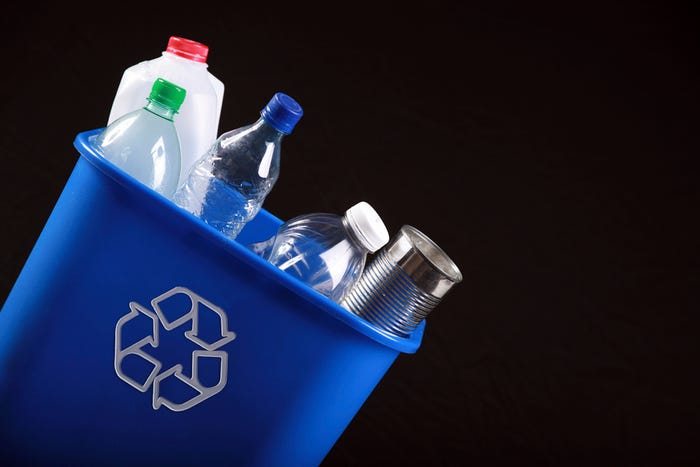A recent study stated an increasing number of Canadians has access to recycling various forms of plastic packaging.The findings show that Canadians have about 95% access to plastic bottle recycling and 91% access to recycling of household tubs and lids used for yogurt containers and other dairy products, up from 88% in 2009, according to a report prepared for the Canadian Plastics Industry Association (CPIA) by CM Consulting.
April 11, 2012
A recent study stated an increasing number of Canadians has access to recycling various forms of plastic packaging.
The findings show that Canadians have about 95% access to plastic bottle recycling and 91% access to recycling of household tubs and lids used for yogurt containers and other dairy products, up from 88% in 2009, according to a report prepared for the Canadian Plastics Industry Association (CPIA) by CM Consulting.
The report also highlighted access for PET non-bottle rigid packaging (such as trays or bakery clamshells), which can now be recycled by 76% of Canadians, three percentage points more than in 2009.
 The largest increase in access for a particular material noted in the report is for foamed polystyrene. Foamed polystyrene for food packaging is now recyclable by 32% of Canadians, and access to recycling for expanded polystyrene protective packaging has more than doubled, increasing from 12% to 31%, in that same time frame.
The largest increase in access for a particular material noted in the report is for foamed polystyrene. Foamed polystyrene for food packaging is now recyclable by 32% of Canadians, and access to recycling for expanded polystyrene protective packaging has more than doubled, increasing from 12% to 31%, in that same time frame.
"We believe that recycling access for foam polystyrene has risen significantly due to advances in affordable technology, which can compact the foam material, thereby reducing its volume and improve cost to ship to recyclers," said Cathy Cirko, VP of CPIA.
Non-foam polystyrene access is at 44%, and access to recycling of plastic bags and other films is estimated at 56%.
"We are very pleased that so many Canadians have access to plastics recycling in their communities," said Carol Hochu, president and CEO of CPIA. "We will continue to work with stewardship agencies and municipalities across Canada to help increase awareness, so that more people will recycle, diverting valuable plastic resources, and supporting our recycling industry."
The research team, CM Consulting, virtually visited nearly every municipal recycling program in the country and tracked which plastic materials were and were not accepted in either in the municipal curbside, depot drop-off program, beverage container redemption locations, or curbside subscription programs.
"Our industry recognizes the importance of recovering material," Cirko told PlasticsToday. "The key is to focus on how you can collect it and get it sorted efficiently to reduce the cost, and then supply it to the plastics recycler."
In January, it was announced the city of Langley would implement a curbside collection pilot project for plastic PE film and PS foam. Eight hundred homes in Langley are currently taking part in the 12-week test program, and on regular garbage pick-up days, the participating households put out bags of wrap and foam.
The collected materials are shipped to a plant, where it is reduced to pellet form and eventually sold to manufacturers to use as recycled content.
The pilot project will wrap up April 27. Once the results are compiled, it may help plan a long-term recycling program for plastics and foam, which is something that is mandatory throughout B.C. by May 2014.
About the Author(s)
You May Also Like


